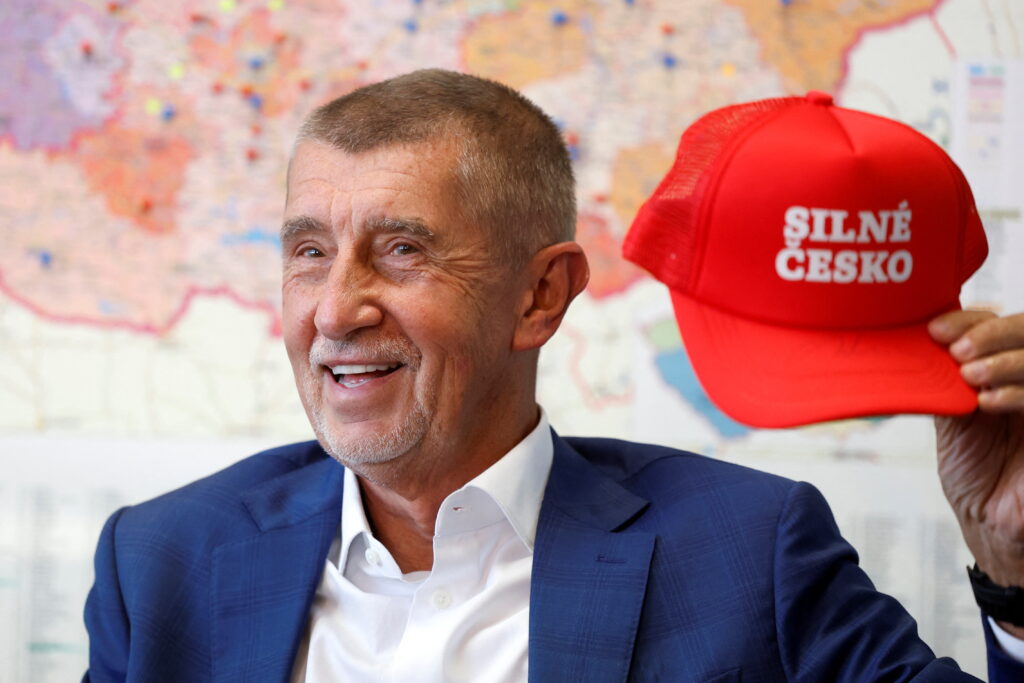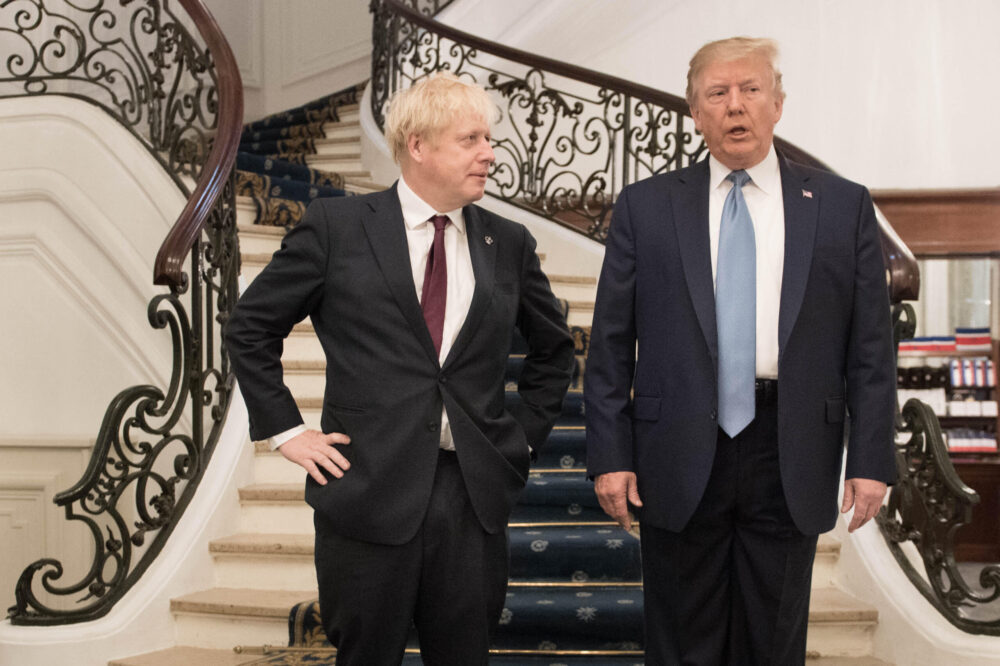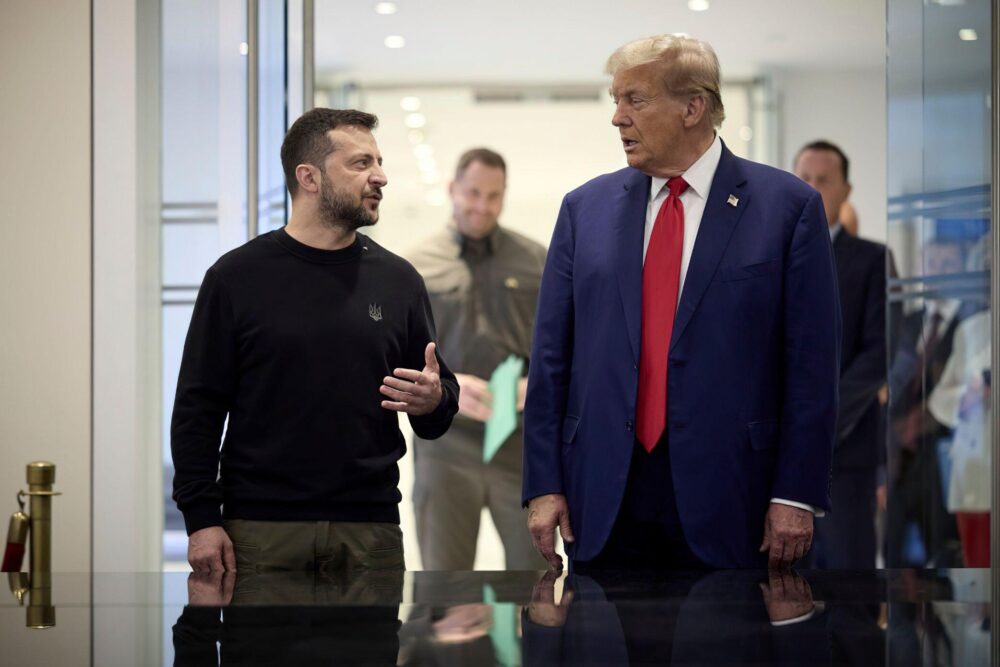
This article first appeared in the Kyiv Post
DURING HIS SHAMBOLIC visit to the UN last week, President Trump unexpectedly declared that Ukraine was in a position to “fight and win” all its territory back from Russia. If this amounted to a welcome boost to Ukrainian morale, the main thrust of his message was that while the US would continue to supply weapons, Europe would have to step up its efforts.
Whether Europeans are prepared to do so is another question – one that will be put to the test as early as this Friday, when voters in the Czech Republic begin casting their votes in a general election. According to my polling, far from going over and above their current commitments, many Czechs think their country is doing too much as it is.
My survey finds voters in the mood for change, both domestically and in foreign affairs. Only just over a quarter of Czechs say their country is heading in the right direction, with a majority saying their politics needs fundamental change. Nearly seven in ten disapprove of the performance of prime minister Petr Fiala’s centre-right SPOLU coalition government. Accordingly, as in other recent polls, I found them trailing heavily to ANO, led by Andrej Babis – a billionaire businessman who, despite being a former PM, has always traded on his status as a political outsider capable of tackling corruption and delivering change.
Stagnant living standards are the main reason behind this discontent. Inflation, prices and the living costs top voters’ priority list, followed by debt and housing, and Czechs are more than twice as likely to say they are worse off than four years ago than to say they are doing better. But international issues – especially the Ukraine war – have also played a part.
After the 2022 Russian invasion, the Fiala government became one of Kyiv’s strongest backers. The pro-EU SPOLU coalition spearheaded both European ammunition initiatives and economic sanctions against Russia. The following year, the election of retired general Petr Pavel as Czechia’s president anchored the country firmly within the NATO alliance.
Three and a half years into the war, economic pressures, energy prices and a sense that domestic priorities are being neglected have combined to erode support for this robust stance. Nearly half of Czechs, including two in three ANO voters, say their country is already doing too much for Ukraine in terms of weapons and military support (only 6 per cent think they are doing too little). While big majorities support further humanitarian aid, I found only a slim margin in favour of continued sanctions. Two thirds were against accepting any more Ukrainian refugees. More voters opposed than supported the idea of Czech troops being deployed to Ukraine as part of a post-settlement peacekeeping force.
In terms of Czechia’s wider strategic position, I found that while most voters still back NATO membership, ANO voters are lukewarm. And while Czechs as a whole see Russia as a threat to their country, fewer than half of ANO voters agree. Strikingly, only a quarter of voters believe that supporting Ukraine makes their own country safer; nearly half, including a majority of ANO voters, think the opposite is true. One in three, and half of ANO supporters, agreed that the Russia-Ukraine conflict had nothing to do with Czechia and they should not be intervening in any way.
If the results follow the published polls, Czechia could follow the example of Poland, with a president and prime minister on opposing sides of the European debate. We could also see the country joining what is from Kyiv’s point of view a worrying trend in central and Eastern Europe, with the existing stance of the Hungarian and Slovakian governments and the new Polish president much less inclined to defend Ukrainian sovereignty. The consequences could include isolating Ukraine from Western European partners, disrupting military supplies and sowing further division in the alliance.
Whether or not the Czechs want to be involved in Ukrainian or Russian affairs, many believe the Russians are meddling in theirs (and with good reason, according to Czech intelligence services and independent analysts). Around half of voters think that foreign powers are trying to influence the outcome of the election, and most of these – including nine in ten SPOLU supporters – think Russia is the main culprit. However, such claims are flying in all directions: those intending to vote for ANO and the right-leaning SPD think more external pressure is being brought to bear by the EU and the US. Czechs also disagree about who is intended to gain from foreign efforts. SPOLU voters think such operations are designed to help the SPD and the left-wing Eurosceptic Stacilo! movement, while ANO backers think SPOLU will be the chief beneficiaries.
Most Czech voters think online disinformation will have some impact on this weekend’s result, but only a quarter believe it will be enough to affect which parties form the next government. Even so, it is notable that in an established democracy at the heart of Europe, voters are evenly divided as to whether their election will be conducted fairly and legitimately and that the results will reflect the wishes of the Czech people – an outcome that will in itself surely satisfy the Kremlin.


